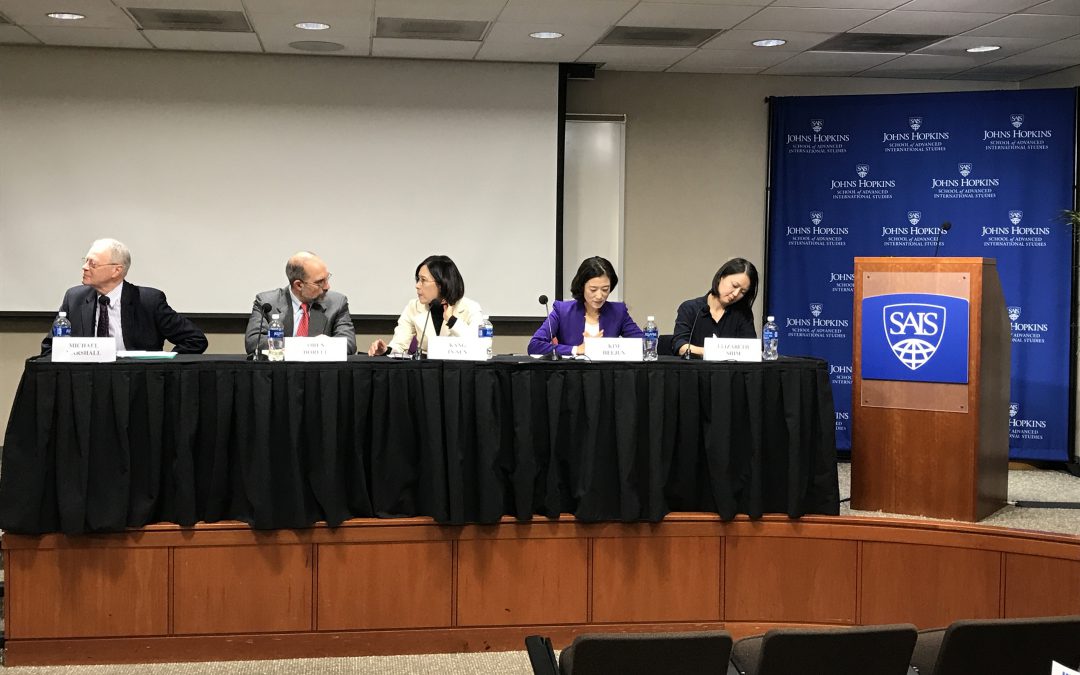WASHINGTON — U.S. and South Korean journalists said Wednesday at a media panel on Korean news coverage that getting credible information out of North Korea is difficult and risky.
The four-member panel agreed that a focus on the reclusive nation’s nuclear capabilities is driving media coverage, but that domestic problems and human rights abuses are all part of the story.
“Human rights issues are as important as nuclear issues,” said Kim Heejun, the Washington correspondent for Korean news channel YTN, a panelist for the event sponsored by UPI and the U.S.-Korea Institute at Johns Hopkins University School of Advanced International Studies.
Heejun produced a series of stories on young defectors being arrested and sent back to North Korea by the Vietnamese and Laotian governments in June 2013.
“If the youngsters enter North Korea again, they might face the hard labor, life imprisonment or even executions,” she said, adding that her reports had “huge impact,” creating media attention and forcing the North Korean leader not to punish the defectors too harshly.
UPI Chief Asia Writer Elizabeth Shim disputed the notion that human rights abuses in North Korea are underreported, with many books and articles devoted to the subject.
What she would like to see: coverage that connects the human rights issue with he weapons issue. “I feel they are very intimately connected,” she said.
Kim Jong Un uses the demonstration of nuclear power to keep the country in control, Shim said.
Oren Dorell, foreign affairs correspondent for USA Today, said his newspaper’s focus is on informing people of the possible outcomes of North Korea’s nuclear capabilities.
Americans worry that another 9/11 could happen and they include North Korea’s nuclear threat in that worry, he said.
Kang Insun, Washington bureau chief of South Korea’s Chosun Ilbo, said that in order to provide more inclusive and accurate news coverage, journalists need a more nuanced and expansive understanding of North Korea.
Chosun once got news out of North Korea by hiring a defector who called relatives in China, who then called relatives on North Korea border. “It was really amazing at the time. but there’s no way to confirm the story. It’s really hard and risky.”


